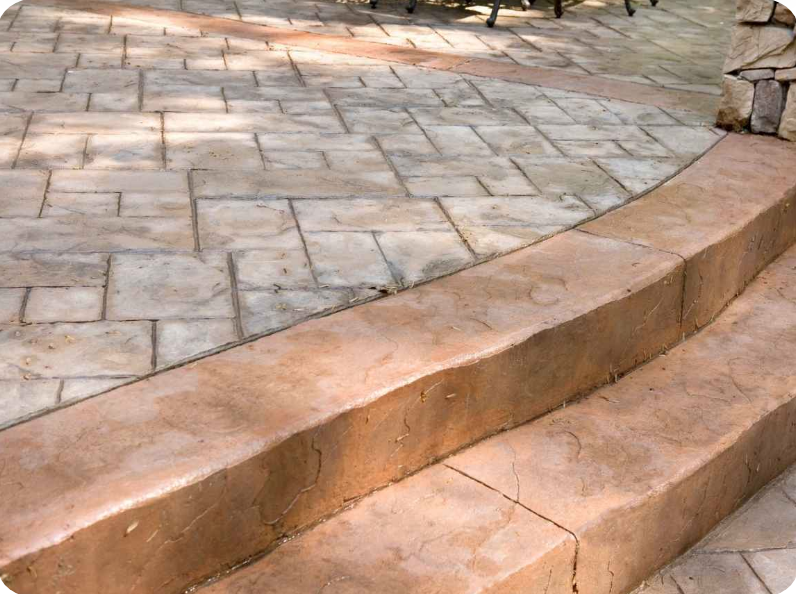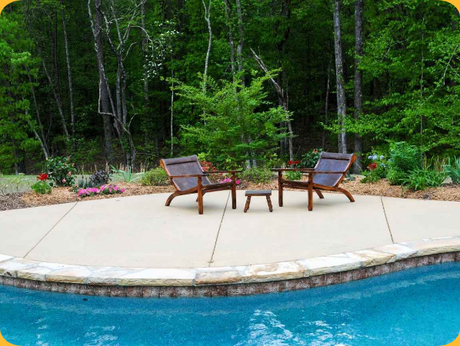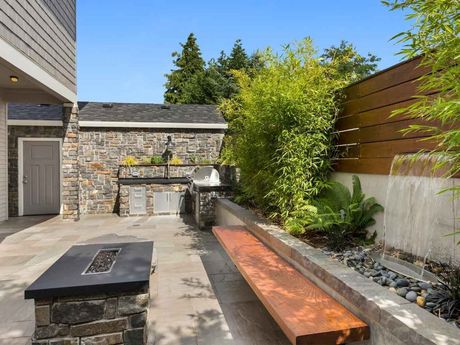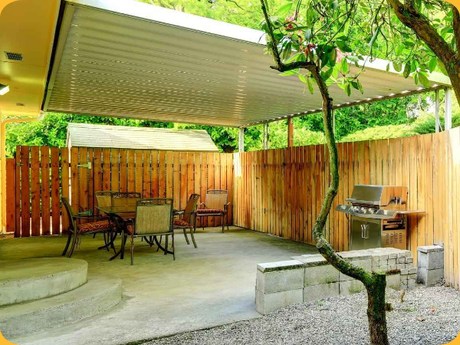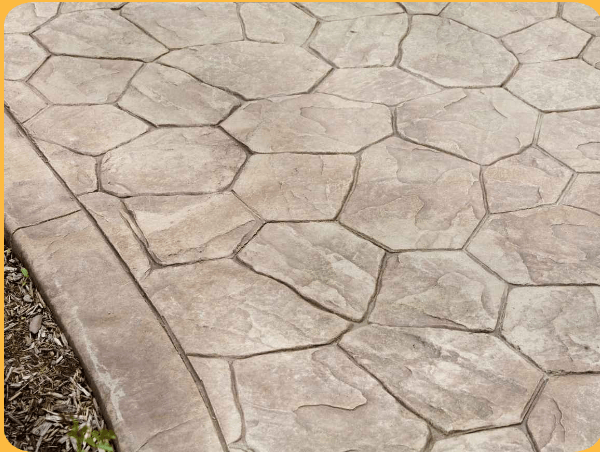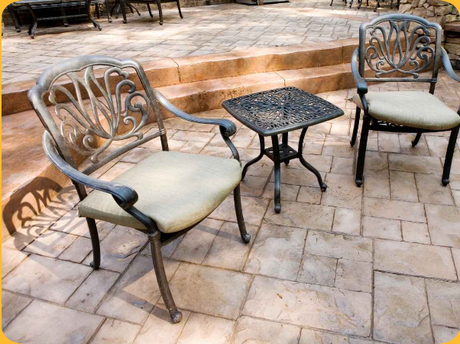Concrete Contractor Norman OK
Norman Concrete Contractors has been serving Norman and the greater Oklahoma City Metro customers for years. As concrete contractors we specialize in pouring driveways, sidewalks, front porches & back patios. We also install pools decks, slabs & stem walls, retaining walls, foundations for residential structures as well as detached structures, stamped concrete, decorative concrete, and patterned concrete, and much more! No project is too big or too small.
If you're looking for the most reliable and affordable concrete contractor in Norman and Oklahoma City Metro areas, you've found it. Our high quality materials, matched with best in the industry workmanship, will make any concrete project a win-win. All it takes is one phone call and a free job estimate and you'll know right away the difference between us and every other concrete contractor that you've worked with.
When you're need concrete services, we know it's vital to have the best quality materials and the best possible workmanship. Whether is a foundation that no one will ever see, or decorative concrete on your back patio, we understand the importance of a job well done. We have the best finishers in the industry and we know you'll love your finished project. As a contractor, word of mouth referrals are the biggest compliment we can receive. So we treat every new job as an opportunity to create a satisfied customer and a future referral source. We will go above and beyond to make sure all your expectations are met and all your concrete jobs are completed timely and at or under budget.
Call us today at
405-767-0032
Our Services
New Construction Concrete Your stem wall and foundation on your residential or commercial structure is the most important piece of the entire puzzle when it comes to your new construction project. Our concrete is literally the foundation to your entire job. That is why it's so important to work with a trusted concrete contractor that uses the highest quality materials in their concrete to provide you with the best and more durable product that you can find. At Norman Concrete Contractors, we know we can be that concrete contractor for you. Contact us today for your free estimate.
Driveway & Sidewalk Concrete The driveway and the sidewalk can be some of the most tricky projects on the entire job site. Because of how much the driveway and sidewalk is used, and how thin the concrete is slab is, the preparation of the site, the installation process, and the quality of materials is so important to ensure you have a beautiful and long lasting driveway or sidewalk. If you accidentally hire some fly-by-night concrete contractor, you might be left with a cracking and shifting piece of concrete that needs to be replaced in just a year or two. Contact us today for your free estimate.
Decorative Concrete & Stained Concrete The quickest and easiest way to spruce up your concrete driveway, porch, or patio is to add unique decorative stamps or colorful stains. Let us help you turn any boring concrete surface into a centerpiece for you and your guests. Whether you're wanting us to pour a whole new surface or you're wanting us to do a decorative concrete overlay, we have the tools and the expertise to get the job done quick and for the best price. Contact us today for your free estimate.
Commercial Concrete We don't just offer residential services. Our concrete technicians are trained and knowledgable in the application of commercial concrete as well. Regardless of the size of the job, we can handle anything from new construction of a commercial structure, parking lots, parking structures, private or public roads, etc. Contact us today for your free estimate.
Yard Drainage, Landscaping, & Hardscaping
Concrete is the primary service we provide, but we also strive to be a full service exterior maintenance and design company. Not only can we install your concrete patio, but we can ensure your yard is graded for water to properly run to prevent any foundation or cracking issues. We do everything from re-grading the dirt around your patio or house to installing french drain systems. We can also build your retaining walls, covered patios, outdoor kitchens, pergola, gazebos, fences, desks, fire pits, and much more. If you have an idea, we've probably built it before. Call us today for your free estimate.

Schedule Your Free Quote Today
Concrete Contractor Norman OK
Norman Concrete Contractors partners with Tri Cities Concrete Contractor and will come out 7 days a week and give you free estimates for whatever concrete project you have. We can handle anything from staining existing patios, to pouring new decorative concrete patios, to residential and commercial foundations, retaining walls, road paving, and other heavier construction projects. There is no job that is too big or too small for us to handle. We want to make sure that all of our customers receive the very best concrete work combined with the very best customer service. Call Us Today.
Understanding Concrete Construction
How Concrete Is Made
Concrete is a mixture of several materials combined to create one composite building material stronger than all the individual materials alone. Most concrete mixtures is made up of three ingredients; cement, water, and aggregate. Depending on the load requirements or the strength needed, steel reinforcing bars can be added to the mixture. Cement is used as the binder that sets, hardens, and adheres other materials together, such as the aggregate. The aggregate that is set, hardened, and adhered is typically made up of sand and gravel or crushed stone. During the production of concrete all of the ingredients are batched and the cement, aggregate, and water are added together and loaded into concrete trucks. The concrete trucks are equipped with revolving mixer that allows the truck to keep the concrete agitated while it's being transported. Without the mixer, the concrete would begin to cure and harden while it's being transported.
Concrete Over The Years
Forms of concrete date all the way back to the Pyramids of Giza, where ancient Egyptians used a concoction of mud, water, and straw to produce the building material. Later, in the 1st century BC, the Romans began using concrete to build many of their icon structures such as the Pantheon and the Colosseum. After the fall of the Roman empire, the use of concrete in any meaningful way decreased significantly until the 18th century when hydraulic cement was created and used during the construction of most sea walls and bridges. Then, in 19th century, Portland Cement was created, which is a combination of different limestones and additives, such as trass and pozzolanas. Portland cement is the most common type of cement used in concrete mixtures today. From then, the strong and workable material began to grow in the number of uses across the construction industry. Everything from sewer systems to skyscrapers would eventually see concrete as their primary building material. Lastly came the innovation of reinforced concrete. Using steel bars laid properly in the concrete can significantly increase the structural capacity of the concrete. This is what most modern roads, bridges, and buildings are made of today.
How to Pour Concrete Properly
First, it's important to properly clear the surface where you are about to pour concrete. Remove any grass, trees, rocks, or old concrete and get the surface as level as you can. Once your surface is prepared, you can lay your subbase which is typically open-grade stone. Then you need to tamp the subbase to make sure the subbase as well as the surface is compact tightly to prevent movement or craters occurring over the concrete. Next, you will lay out your perimeter using wood pieces fixed to the ground with stakes. Be sure your perimeter forms have a slight slope to them so water can properly grade off the surface. Depending on what the concrete surface is for, at this point you can install rebar to reinforce the concrete if you're building a driveway or anything else that needs to bear a heavy weight. If you're just pouring concrete for a back patio, the reinforcement is not necessary. Once the site is prepared, you will need to begin mixing your concrete, but combining the ingredients; cement, sand, & aggregate. Be sure to check what ratios you want to mixture to be based on what you're using the concrete for. Once the concrete is mixed you can begin pouring it into the site that you've prepared. While the concrete is still wet, you can begin flattening it using a screeting tool until it's mostly level with your perimeter form. While the concrete is still curing, you will want to use a bull float to begin floating the surface making it even smoother. Then, depending on how large your site is, you might want to add control expansion joints every 6 feet or so. As the concrete begins to dry and cure more, you will use a broom to create some traction and grip on the concrete surface so it is not too slippery when it is wet. Lastly, you need to seal the concrete to help it cure fast, and prevent cracks and discoloration. Then your concrete pad is ready to enjoy.

